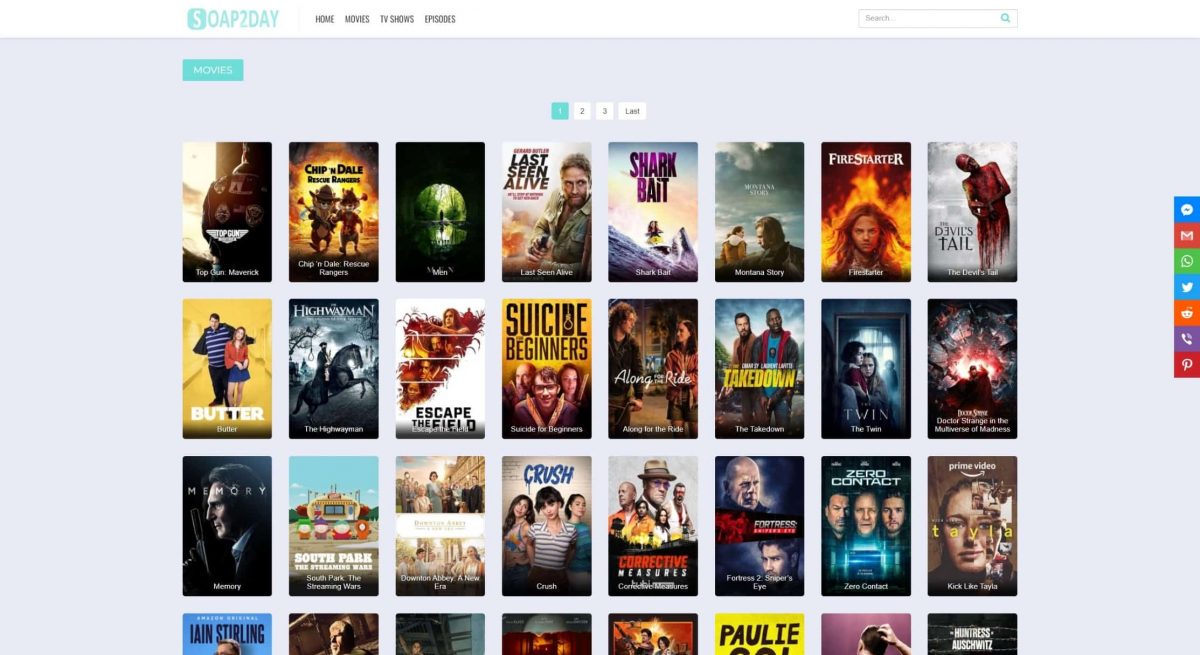
Soup2Day: A Deep Dive into the Streaming Phenomenon
In recent years, the rise of free movie streaming platforms has caught the attention of movie enthusiasts and authorities alike. Among these platforms, Soup2Day stood out for its extensive library of films and TV shows, offering users access to a wide range of content at no cost. However, its growing popularity also brought legal controversies, leading to its eventual shutdown. In this article, we will explore what Soup2Day was, how it operated, its rise in popularity, and the legal implications that ultimately led to its downfall.
What Was Soup2Day?
Soup2Day was an illegal streaming website that provided free access to a vast collection of movies and TV shows. Users could watch a variety of genres, from the latest blockbuster hits to classic films, without the need to sign up or pay a subscription fee. This ease of use made it highly attractive, especially when compared to paid services like Netflix, Hulu, and Disney+.
Unlike legal streaming platforms, Soup2Day did not host the content on its own servers. Instead, it functioned as a streaming aggregator, providing links to third-party hosting services where the content was stored. This approach allowed the site to evade detection for a while and avoid some legal consequences directly associated with hosting pirated content.
Rise in Popularity
During its peak, Soup2Day became a go-to platform for millions of users worldwide. With its no-signup policy and an impressive array of content, it appealed to a broad audience, including those who were frustrated with the fragmentation of streaming services and high subscription costs.
Many users saw Soup2Day as a way to access movies and shows that were otherwise difficult to find on mainstream services. As platforms like Netflix and Disney+ started creating exclusive content, it became harder for users to watch all their favorite shows without subscribing to multiple services. Soup2Day provided a one-stop solution for people looking to bypass these financial barriers.
The COVID-19 pandemic also played a role in its popularity. With lockdowns in place, many people turned to online entertainment, and Soup2Day emerged as a convenient way to access films and shows for free when many were financially constrained.
Legal Controversies
Despite its popularity, Soup2Day operated in a legally gray area that bordered on outright infringement. Streaming copyrighted content without proper licensing is illegal in most countries, and platforms that facilitate such activities often face legal consequences. Soup2Day was no exception.
Authorities and copyright holders became increasingly aware of Soup2Day’s operations. The Motion Picture Association of America (MPAA) and other rights organizations actively monitor such platforms, as they cause significant revenue losses for the film industry. Websites like Soup2Day not only bypass legal channels, but they also undermine the business models of legitimate services that pay for the rights to distribute content.
In response, many countries began taking steps to block access to the website, and some users reported encountering warning messages when attempting to visit it. These legal actions, combined with the growing pressure on its hosting services, contributed to the platform’s instability.
The Shutdown of Soup2Day
In 2023, after years of operation, Soup2Day was finally shut down. While various mirror sites and clones have since appeared, none have managed to achieve the same level of success or reliability as the original. The shutdown was a result of a concerted effort by copyright holders, governments, and internet service providers to crack down on piracy.
The closure of Soup2Day was part of a larger trend in which authorities worldwide have been working to dismantle illegal streaming networks. In recent years, several high-profile piracy websites, such as Putlocker and 123Movies, have faced similar fates. While this may serve as a deterrent to would-be operators of illegal platforms, the appetite for free content remains, and new websites continue to emerge.
The Broader Impact of Illegal Streaming
Soup2Day’s rise and fall are indicative of a broader issue facing the entertainment industry. As streaming services become more fragmented, with different companies holding exclusive rights to specific content, many users feel frustrated with the increasing number of subscriptions they need to maintain. This fragmentation has led to a surge in illegal streaming as consumers search for ways to access all their favorite content without being tied to multiple platforms.
The entertainment industry has attempted to combat this by offering more flexible pricing options, bundling services together, and creating partnerships to provide a more cohesive experience for viewers. However, the existence of illegal platforms like Soup2Day shows that there is still a significant demand for more accessible content.
Conclusion
Soup2Day was a popular but illegal streaming platform that allowed users to bypass subscription fees and access a wide range of movies and TV shows. Despite its convenience, it operated in violation of copyright laws, leading to its eventual shutdown. The platform’s rise and fall highlight the ongoing challenges that both the entertainment industry and consumers face in navigating a fragmented streaming landscape.
While legal streaming services continue to evolve, the closure of platforms like Soup2Day shows that authorities are increasingly vigilant in their efforts to combat piracy. As the entertainment industry works to find more accessible solutions, consumers are left to weigh the benefits of paid services against the lure of illegal platforms, understanding that the legal repercussions of piracy are real and growing.


